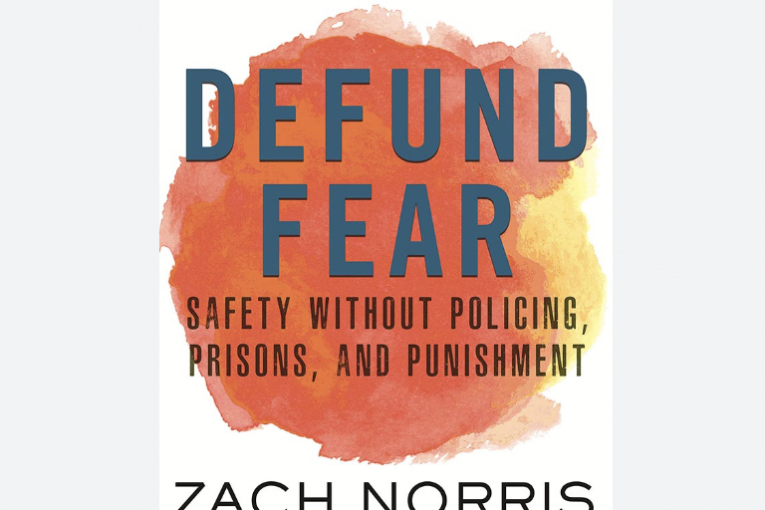
![]()

By Jessica Diggs
The UC Davis Campus Community Book Project, an initiative by the UC Davis Office of Diversity, Equity, and Inclusion, held an online panel this month on restorative justice, one of several events organized by the program to bring the campus together through collective reading and discussion.
This recent discussion was aptly labeled, “Examining the Intersection of Safety and Justice — A Community Conversation.”
Each year, a book is chosen by a committee of students and faculty that addresses issues of diversity, community, and inclusion. This year, the committee selected Defund Fear: Safety without Policing, Prisons, and Punishment by renowned author and activist, Zach Norris.
Norris, who has a history of devising and implementing projects focusing on communities harmed by the California prison system, was a featured speaker in the hour-long panel that included academics, conflict resolution experts, and educators. Their discussion centered on the theme of Norris’ book: restorative justice.
The concept of restorative justice is nothing new. According to the Center for the Study of Social Policy, its origins can be traced to indigenous peacekeeping. The Indigenous Peacemaking Initiative website states that this form of accountability, long utilized by indigenous communities, promotes community support instead of punishment, and “facilitates healing processes in both tribal and non-tribal communities.”
Calling himself a “promoter” of restorative justice, Norris shared with the panel how this concept differed from traditional western criminal legal systems.
“We have a criminal justice system that is based on separation, isolation, depriving people of their rights,” said Norris, “which doesn’t lead to greater accountability, health, or justice.”
Norris continued, “I define restorative justice as holding people accountable while still holding them in community.”
Panelist Torry Winn, Associate Professor of Teaching in Education in the School of Education at UC Davis and Co-Director of Transformative Justice in the Education Center, explained what restoration meant to him.
“When you live in a community space where people know each other, you don’t have to worry about being dehumanized,” said Winn. “So when people ask what we are restoring…we’re restoring folks who have been dehumanized.”
The last half of the discussion featured a Q&A, where the panel was asked if there were limitations to restorative justice. Kara Hunter, Executive Director of Yolo Conflict Resolution Center, said that people are not always willing to interact with someone who they have harmed or have been harmed by. “Participants have to be ready,” said Hunter, “particularly if we are talking about really serious crimes.”
Nevertheless, Hunter, whose center has worked with schools and police departments, said that she has seen restorative justice used in “a range of crimes” while participants worked “with traditional legal systems,” a combination of approaches that was helpful to both parties.
Panelist and UC Davis School of Law Professor of Law Emerita, Mary Louise Frampton said “it is very effective for those very serious crimes, and it is really those kinds of crimes for which we need the greatest healing.”
Winn also highlighted a 2013 New York Times article that covered a case in Florida of a man who faced the family of a woman he murdered. Winn said the story was one example of “a real-life serious event where restorative justice has worked.”
But Norris admitted that there are limitations to restorative justice, and cited the “woefully inadequate” accountability of people in power “who have benefited from racial injustice.”
“We have to build a community,” argued Norris. “We have to not only empower individuals, but build political power in order to bring the powerful actors who benefit from long histories of racial injustice…who still benefit from those same ongoing histories, to be able to sit in a circle with us.”
For more information about this and future events by the Community Book Project, visit their webpage. Those interested in participating in book selection can apply here. To learn more about Norris’ book and how to purchase it from the UC Davis bookstore for a discounted price, click here.